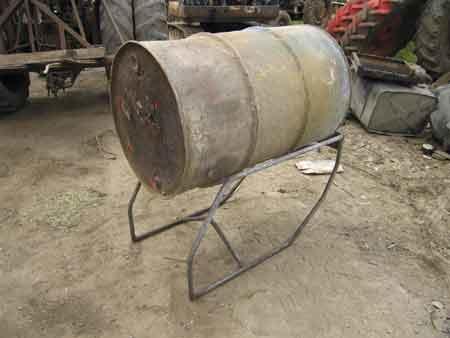
TOUGH OIL TIMES

Beleaguered oil and gas executives gathered here for a global energy conference sounded a common message: Blood may be in the water, but it isn't ours.
Forced to reckon with a prolonged period of low energy prices, oil chiefs at the annual IHS CERAWeek energy gathering sought to portray themselves as steely survivors in an industry grappling with spending cuts and asset sales
Many executives counted how many previous crashes they had weathered. Some took solace in the musings of "Persian wise men" and philosophers from the 19th century.
Industry leaders nonetheless were emphatic on two points: Their companies will pull through, and whenever the price rebound comes, they will be ready to take advantage of it.
"Times are tough, you'd almost call them brutal right now," said Lamar McKay, BP PLC's deputy chief executive. "But we will adapt. We will make it."
The words at times seemed at odds with immediate financial realities, although many were taking a long view. BP, for example, reported a $5.2 billion loss in 2015 and earlier this month announced an additional 3,000 job cuts.
Hess Corp. chief executive John Hess touted his company's survival prospects, saying among other things he sees lower costs than peers in North Dakota. Yet, the company saw a loss of more than $3 billion in 2015, its first in more than a decade.
"Our company has some of the best acreage," Mr. Hess said. "We can be more resilient as prices recover."
The mood reflects the realization that no cavalry is coming. Energy companies are likely to stay mired—for months if not years—in a global oil glut that has sent crude prices to $30 a barrel.
That became clearer Tuesday when Saudi oil minister Ali al-Naimi told a packed ballroom here that the kingdom had no plans to cut its output to boost prices. Instead, the world's largest oil exporter is banking on market forces to drive out companies saddled with higher production costs. That, in turn, would reduce global supplies.
Mr. Naimi said his country was prepared to withstand $20 crude if needed to thin the herd.
Oil prices, which had rallied last week on news of a tentative agreement by Saudi Arabia, Russia, Venezuela and Qatar to freeze oil output before falling on Mr. Naimi's comments Tuesday, edged 0.9% higher on Wednesday to $32.15 a barrel.
Energy companies have cut more than 300,000 jobs world-wide since mid-2014, when crude-oil prices began their tumble from $100 a barrel, according to Houston consulting firm Graves & Co. Globally, nearly $1.5 trillion of spending will be canceled from 2015 to 2019, according to IHS, a consulting and analytics firm. The spending cuts will push U.S. shale output down by 600,000 barrels a day this year and by 200,000 barrels a day in 2017, according to a forecast unveiled here on Monday by the International Energy Agency.
Troubled energy companies also can't count on well-financed white knights to save them by writing fat checks for oil and gas acreage—at least not until oil prices show signs of stabilizing, said Bobby Tudor, CEO of energy-focused investment bank Tudor, Pickering, Holt & Co. "There's just no money coming into the system," Mr. Tudor said.
At least 48 North American oil and gas producers have filed for bankruptcy protection since the beginning of 2015, imperiling more than $17 billion in debt, according to law firm Haynes and Boone.
More are soon to follow, shale pioneer Mark Papa, the former CEO of EOG Resources Inc. and now a partner at energy-focused private-equity firm Riverstone Holdings LLC, told attendees. There will be "a lot of bodies, a lot of bankruptcies," said Mr. Papa.
Saudi Arabia's refusal to cut output could bankrupt as many as half of all shale producers, Scott Sheffield, CEO of Pioneer Natural Resources Co. Not his company, though, he said Wednesday in an interview. Pioneer lost $623 million in the fourth quarter and has cut its 2016 budget to $2 billion. But, he also voiced his concern that the industry may not be in a position to take advantage of a rebound.
"When it's time for us to respond in 2019 and 2020, we are not going to be able to respond quick enough," he said.
The prevailing sentiment this week was certainly a departure from the swagger of previous years, when executives emboldened by high prices and the heady promise of shale oil touted multibillion-dollar expansion plans or "moonshot" drilling programs. Still, some CEOs sought to convey confidence that, while the industry may suffer, their companies were well positioned to ride out the storm.
"We will be one of the last guys standing," said Steve Williams, CEO of Suncor Energy Inc., which is selling assets to raise cash for dividends.
While many speakers acknowledged the current hardship, they also took comfort in the idea of an eventual rebound, asserting that the era of low prices has chastened them.
Night is darkest before dawn, said Joe Kaeser, CEO of Siemens AG. His remarks captured the Darwinian mood. To survive a bear attack, one needn't outrun the bear, just out-sprint another person running for his life, Mr. Kaeser joked.
Former BP CEO John Browne, now executive chairman of L1 Energy, quoted German philosopher Georg Wilhelm Friedrich Hegel in expressing hope that the industry will be better prepared compared with past crashes once prices rebound.
"Hegel says if there's one thing history teaches you, it's that history doesn't teach you anything," Mr. Browne said. He added: "I hope that we will actually do the things that we can do properly and just don't get carried away as we did during the high prices."
-----
More:





